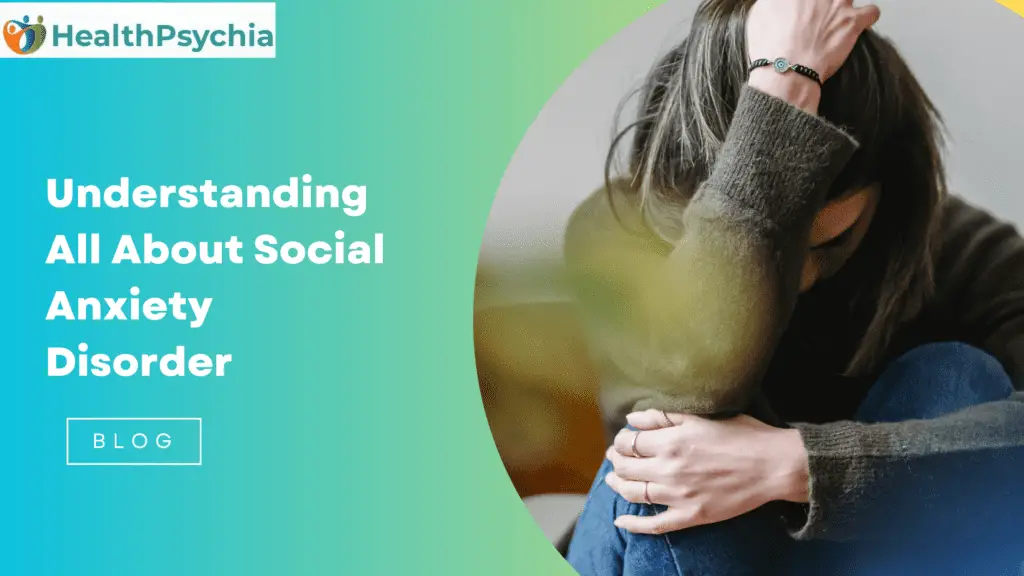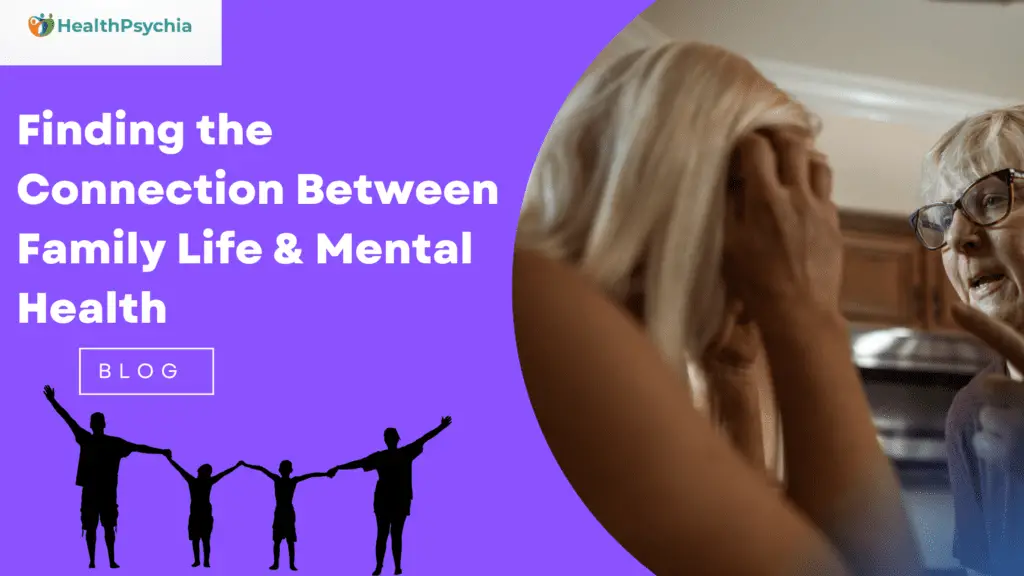People usually feel anxious when performing on a stage or meeting someone for the first time. This type of anxiety is normal.
But if you feel anxious in nearly every sort of social interaction, you may have Social Anxiety Disorder. Symptoms such as extreme fear, shaking, and discomfort are commonly experienced by people with SAD.
Millions of people worldwide are treated for Social phobia. It is considered to be one of the most common psychological disorders among many others.
A person with Social phobia may experience a social anxiety attack when faced with any social situation. Every person reacts differently to such social situations.
Social anxiety attacks or panic attacks may last for a few seconds to a few minutes with symptoms that include both behavioral as well as physical symptoms.
With this article, we aim to guide everyone with Social anxiety disorder more about the chronic disorder and the treatment options available for their disease.
What Is Social Anxiety Disorder?
In case you feel super anxious while talking to someone or constantly fear that people keep looking at you and will judge or reject you for your acts, you might have a mental health disorder called Social Anxiety Disorder. Social Anxiety disorder is also called Social phobia.
Not everyone with SAD has the same set of signs and symptoms. Some exhibit psychological symptoms only, whereas others may have a few physical or behavioral symptoms.
However, intense or strong feelings of fear, feeling of embarrassment in front of people, and fear of being judged are the most common symptoms, according to people with SAD.
Social anxiety disorder is capable of affecting a person’s social life. Even the daily activities and relationships of a person get affected by this mental health disorder.
Types Of Social Anxiety Disorder
Not everyone with SAD experiences the same set of physical and mental symptoms.
Some people feel a bit anxious while performing for the first time on the stage but eventually get at ease with the flow, while some have a fear of being judged or rejected by a person they are going to meet for the first time.
It is completely normal to react as such in such situations, but others with social anxiety disorder experience psychological and behavioral symptoms in almost every social situation. This is when Social anxiety disorder starts affecting the social and mental health of a person.
For more details you can Read Role of Behavioral Health for a Good Life.
Symptoms of social phobia vary depending on several factors. A few factors which often affect the symptoms a person experiences are a person’s willpower to deal with such events, history of previous events, or family background.
This indicates that there is a wide spectrum of symptoms, and with this wide variety, categorizing the symptoms can help make the diagnosis and treatment easy.
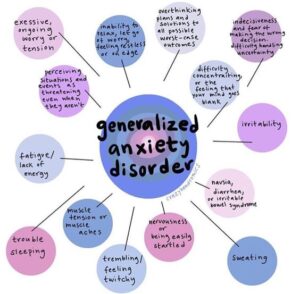
Generalized Social Anxiety Disorder
As the name indicates, people with Generalized Social Anxiety Disorder experience anxiety symptoms in almost every social interaction.
Intense and persistent fear in almost every social situation is the most common sign. Such people have a constant feeling of being judged by people.
From social life to mental and physical life, everything becomes excessively difficult for such people. Attending school, making friends, maintaining healthy relationships, everything seems to be a little too difficult for such people.
Non-Generalized Social Anxiety Disorder
Non-generalized social anxiety disorder is another subtype of Social phobia. It is also known as Specific social anxiety disorder.
As the name indicates, people with this subtype of SAD experience symptoms like fear and anxiety but in specific situations.
Unlike generalized anxiety disorder, people with specific social anxiety disorder experience symptoms such as anxiety and fear in specific situations like speaking in a public place, performing in front of someone, using a public restroom, eating in public, or meeting someone special.
Causes And Risk Factors Of SAD
Social anxiety disorder is considered to be an amalgam of many factors, which means not an exact cause can be associated with SAD.
The possible causes of Social anxiety phobia can be:
● Genetics: People with a positive family history of anxiety disorder, including Social phobia, have a high chance of developing a social anxiety disorder.
● Brain Chemistry: Our body produces specific chemicals in the body to control several processes in our body. These are called Neurotransmitters. An imbalance in these chemicals, such as serotonin and dopamine, may contribute to developing Social phobia.
● Environmental Factors: If someone has a traumatizing past experience, such as being harassed or bullied in school by peers, he has an increased risk of developing SAD.
● Temperament: People who are reluctant and sensitive are more likely to develop SAD.
● Negative experience: People who are exposed to conditions such as bullying, rejection, humiliation, or teasing at a young age are more prone to develop SAD.
● Limited Socialization
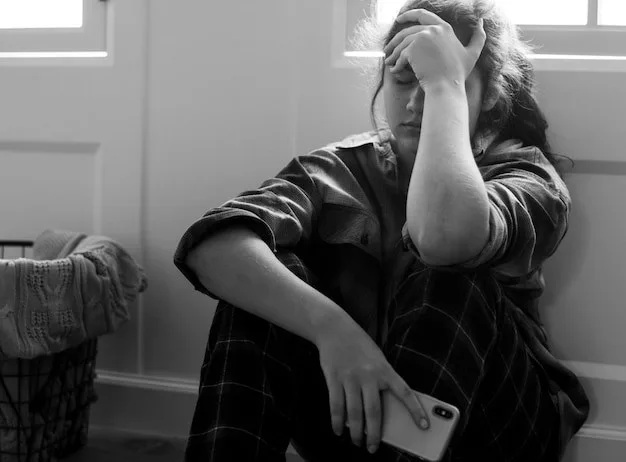
Symptoms Of Social Anxiety Disorder
It is normal to feel shy or a bit uncomfortable in situations like meeting someone special, giving a presentation, performing on a stage, etc.
In contrast to everyday nervousness, social phobia includes symptoms that interfere with the daily activities of a person.
The emotional and behavioral symptoms of Social Anxiety Disorder include:
● Fear of being judged negatively
● Fear of embarrassing or humiliating yourself
● Intense fear while talking to strangers
● Anxiety during social situations
● Identifying flaws in yourself in your interaction after a social situation
The physical symptoms of Social disorder include:
● Sweating
● Blushing
● Tremors
● Shivering
● Upset stomach
● Nausea
● Dizziness
● Muscle spasms
● Increased heart rate
Diagnosis Of Social Anxiety Disorder
Although curable, timely diagnosis of SAD is important. Your healthcare provider will diagnose SAD on the basis of the following examinations and tests.
A detailed history of the signs and symptoms experienced by you will help your doctor in diagnosing SAD. He may want to discuss your symptoms or review a list of situations that can cause extreme social anxiety for you.
DSM-5 Criteria for SAD can be used to diagnose severe social anxiety. These criteria include:
○ A continuous and severe fear or anxiety about certain social situations that could lead to negative judgment, embarrassment, or humiliation
○ Avoidance of anxiety-provoking social situations or facing them with a severe sense of fear or anxiety
○ Anxiety that is disproportionate to the situation at hand
○ Anxiety or distress that impedes your daily life and routine
○ Fear or anxiety that cannot be explained by medical conditions, medication, or substance abuse
Treatment Of Social Anxiety Disorder
Social anxiety disorder has the tendency to affect one’s life in several negative ways.
The treatment options for social anxiety disorder encompass various effective therapies and medications that effectively manage and alleviate symptoms of social phobia.
For more details you can read 10 Non-Medication Solutions for Depression
Psychotherapy
Psychotherapy is considered to be very beneficial for SAD. It is believed that it helps individuals with social anxiety disorder in shaping their negative self-perceptions.
Cognitive-behavioral therapy (CBT) is an effective form of psychotherapy and can be administered on an individual basis, providing an opportunity for individuals to express their emotions or in a group setting, where participants can share their experiences related to the disorder.
Exposure-based CBT involves gradually confronting feared situations and is particularly effective in treating this social disorder.
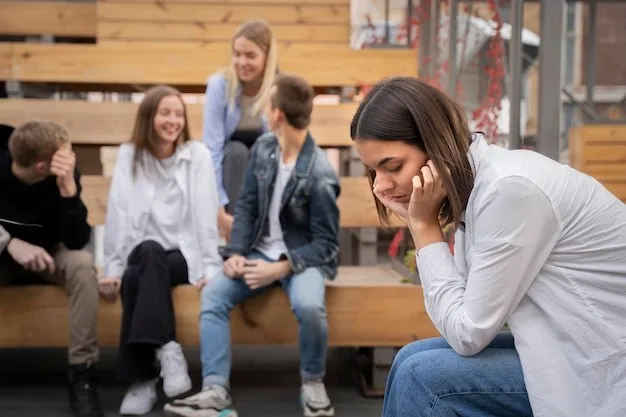
Medications
● SSRIs (Selective Serotonin Reuptake Inhibitors) like paroxetine and sertraline.
● SNRIs (Serotonin and Norepinephrine Reuptake Inhibitors) like venlafaxine.
● Your healthcare provider may also prescribe some antidepressants with the least number of side effects to treat social anxiety attacks.
● Anti-anxiety Medications like benzodiazepines may also help to reduce crowd anxiety.
● Beta-blockers such as propranolol can be used to help you decrease heart rate, sweating, or tremors.
Conclusion
Social anxiety disorder is a complex and challenging condition that can significantly impact a person’s quality of life.
But a thorough understanding of this mental illness helps treat this disorder effectively. With a combination of therapy, medication, and self-help strategies, individuals can regain control over their lives and overcome the debilitating effects of social anxiety.
We hope this article helped you understand the basics of Social Anxiety Disorder.
Frequently Asked Questions (FAQ’s)
Here are a few frequently asked questions for you to understand more about this Social disorder.
What triggers Social Anxiety?
Social anxiety can be triggered by many factors. History of abuse, trauma, bullying, or teasing can cause social anxiety attacks.
How do you treat Social Anxiety?
Psychotherapy and medications can help a lot in alleviating the symptoms of Social phobia. Other things that can help treat SAD include:
● Learning stress-reduction skills
● Getting engaged in physical exercise
● Limiting caffeine and alcohol
● Getting enough sleep
What are the 3 most common symptoms of social anxiety?
The 3 symptoms of social anxiety phobia include:
● Fear of being judged
● Worrying about embarrassing yourself
● Fear of interacting in a social situation
Can Social Anxiety be fully cured?
Social anxiety is treatable, and its symptoms can be alleviated if diagnosed and treated properly.
